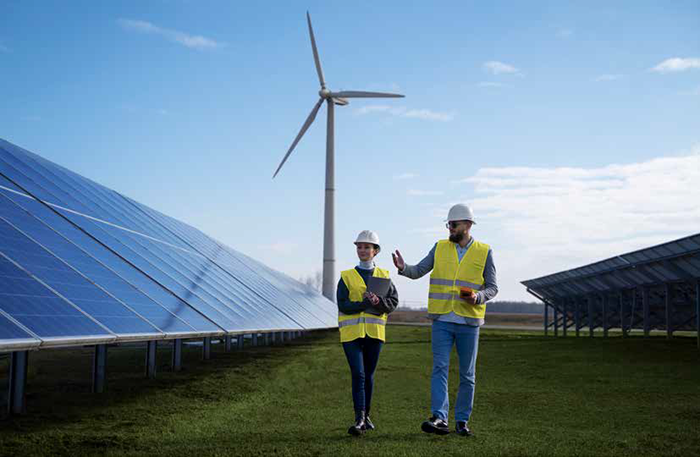The environmental commitment adopted by countries around the world to fight climate change has created the search of governments towards the ecological transition. The U.S. Government, under President Biden Administration´s commitment to fighting climate change, is looking for ways to support companies to comply with this change.
Wind power generation
Wind energy in the United States is a branch of the energy industry that has expanded rapidly in recent years. The country’s total installed capacity for wind power generation is relatively high. So far, its capacity has been exceeded only by China and the European Union.
ESG criteria
Supporting the environment and communities and learning to be better at what they do allows them to achieve their goals. ESG methodology has a substantial impact on companies around the world. The U.S. government is working to support this methodology and the country’s ecological transition.
Funding opportunity
The U.S. Department of Energy announced a $28 million funding opportunity through President Biden’s Bipartisan Infrastructure Act. The bill will seek to enable wind energy in all its applications (offshore, onshore, and distributed) to address deployment hurdles and reduce costs.
Green transition
On energy and the green transition, the Biden-Harris administration is committed to achieving 100% clean electricity by 2035 and a net-zero emissions economy by 2050. That said, wind power accounted for more than 9% of total domestic electricity generation in 2021, making it a key player in achieving the goals.
Research topics
DOE is expected to award up to 27 grants under this funding opportunity, ranging from $200,000 to $3,000,000.
The funding opportunity features a variety of research topics applied to wind energy.
- DOE will support projects on technologies for transmitting large amounts of electricity from offshore wind energy over long distances, and this topic will receive $9.7 million.
- Second, it will seek to improve the development of permitting concessions so that distributed wind energy can be accessible to communities and deployed cost-effectively and equitably. They will support these projects with $3.3 million.
- Social science research and community engagement to help communities benefit from offshore wind energy development will have a budget of $6.9 million. The social part is vital to achieving a change without affecting all these communities.
- And finally, the last theme will have $8 million to improve technologies. That help bats avoid wind turbines while the industry works to minimize the impact on wildlife and local ecosystems.
Encourage participation
Around the country, all national entities can participate. As principal recipients or sub-recipient of this funding opportunity announcement. Institutions with projects belonging to universities, for-profit and non-profit entities, state and local government entities, and indigenous communities.
The Department of Energy wants to encourage underserved communities and underrepresented social groups to participate in the funding opportunity. They are also looking for projects that apply the ESG methodology, where social and environmental issues play an essential role.
It can be of your interest: January 2023 – The ESG’s impact around the world for the ecological transition


